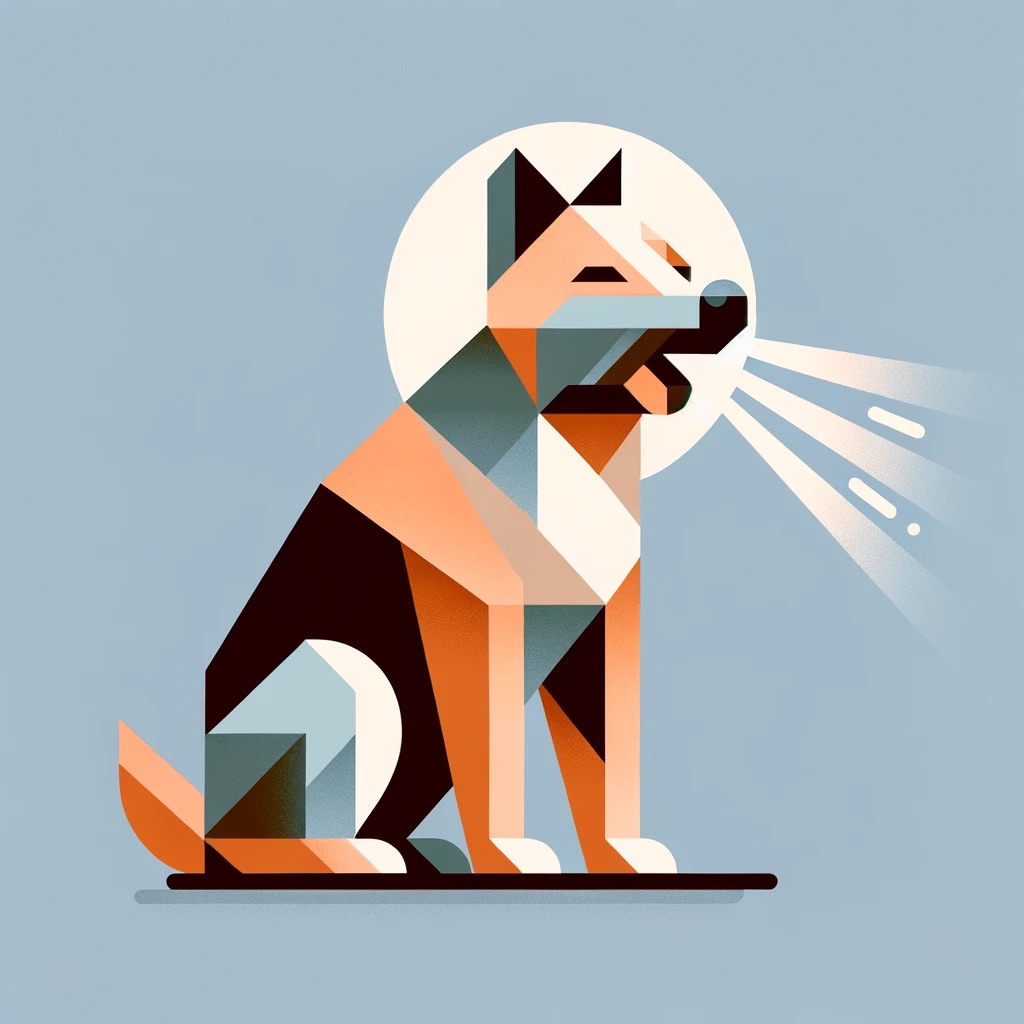Sneezing in dogs is a natural reflex that can cause anxiety for owners. This process can be both harmless and a signal of possible health problems. In this article, we’ll look at the main causes of sneezing and snorting in dogs and learn how to help our four-legged friends.
- Causes of sneezing in dogs
- Foreign objects
- Allergies
- Why does the dog sneeze while playing?
- Nasal tumors or injuries
- Upper respiratory tract infection
- Deformity of the muzzle
- What to do if your dog sneezes many times in a row
- Treatment for sneezing in dogs
- How to prevent sneezing in dogs
- Can a dog’s sneezing turn into a cough?
Causes of sneezing in dogs
Foreign objects
Dogs are curious creatures that often explore the world with their noses. Small objects, dust, and other particles can get into the nasal passages, causing sneezing.
Allergies
Allergies to pollen, dust, pet mites, or certain foods can also trigger sneezing in dogs.
Why does the dog sneeze while playing?
Dogs often sneeze during games, which is a way of communicating and can signal that they are not aggressive.
Nasal tumors or injuries
Tumors or injuries to the nose can cause persistent sneezing.
Upper respiratory tract infection
Infections such as bronchitis or rhinitis can cause sneezing in dogs.
Deformity of the muzzle
Dogs with a short muzzle, like bulldogs, are more likely to have respiratory problems that lead to sneezing.
What to do if your dog sneezes many times in a row
Watch for other symptoms.
Keep the house clean and fresh.
Consult your veterinarian for advice.
Treatment for sneezing in dogs
Treatment depends on the cause of the sneezing. It may include antibiotics for infections, antihistamines for allergies, or surgery for tumors.
How to prevent sneezing in dogs
Ventilate the room regularly.
Use hypoallergenic cleaning products.
Keep an eye on your dog’s diet.
Can a dog’s sneezing turn into a cough?

Yes, a dog’s sneezing can turn into a cough for several reasons. Coughing in dogs can be a symptom of a variety of health problems, from the most minor to the major. Here is a detailed overview of potential causes of coughing in dogs:
- Heart disease: Heart disease can lead to fluid buildup in the lungs, causing a cough. This is more common in senior dogs or those with a history of heart problems.
- Pneumonia: Pneumonia, or inflammation of the lungs, can be caused by infections that start with sneezing and progress to a deep cough. It is a serious condition that requires immediate treatment.
- Tracheobronchitis: Known as kennel cough, tracheobronchitis is a contagious disease that spreads rapidly between dogs. It often starts with a light sneeze that can develop into a severe cough.
- Tracheal collapse: This is a structural problem that causes narrowing of the trachea and leads to coughing, especially during excitement or exercise. It is more common in small breeds.
- Heartworm disease: A disease caused by parasites that live in the heart and blood vessels of the lungs. A cough may be one of the symptoms.
- Canine influenza: Viral infections such as canine influenza can cause respiratory symptoms, including coughing.

